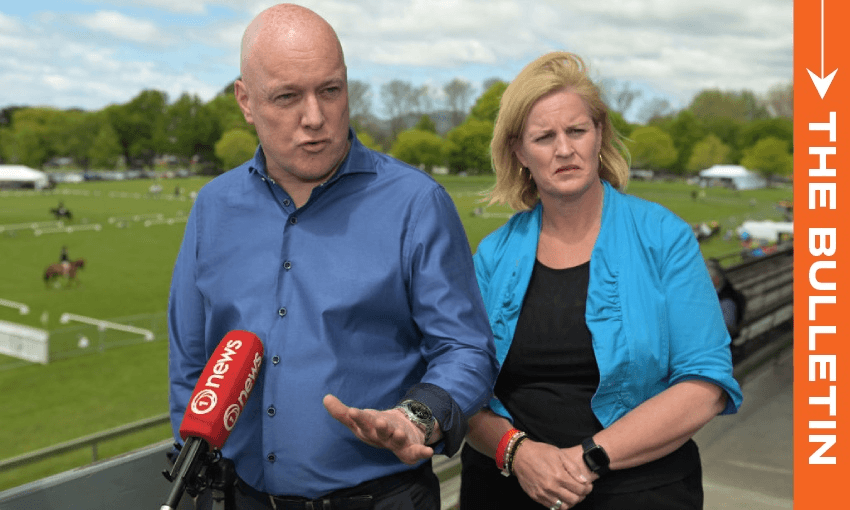A return to a stricter regime of sanctions for those on the unemployment benefit has been described as ‘political theatre’ and ‘building a legacy of cruelty’, writes Anna Rawhiti-Connell in this excerpt from The Bulletin, The Spinoff’s morning news round-up. To receive The Bulletin in full each weekday, sign up here.
Welfare system ‘reset’ signalled
Yesterday, prime minister Christopher Luxon and social development minister Louise Upston announced a return to a stricter regime of sanctions for those on the unemployment benefit. Luxon said he’s seen enough evidence to prove the use of sanctions should be ramped up to get more people off the benefit. The announcement isn’t really new news, with the National Party pledging to introduce more sanctions for unemployed beneficiaries who “persistently” do not meet benefit obligations in September last year. The sanctions in question already exist. Yesterday’s announcement was signalling, with Upston telling Checkpoint as much. The announcement signalled a “reset” of the welfare system, she said. It was also flagged in Luxon’s State of the Nation speech on Sunday. “We’ll do everything we can to help people into work, but if they don’t play ball the free ride is over,” he said.
‘Out of touch’ and ‘building a legacy of cruelty’
Labour and the Greens have come out in opposition. Carmel Sepuloni, Labour’s social development spokeswoman, said the announcement was “unfair” and “out of touch”, criticising Luxon for speaking down to beneficiaries by assuming jobseekers didn’t want to work. Green party social development spokesman Ricardo Menéndez March said the Government was quickly building a legacy of cruelty. “Now, today, we have yet another measure to penalise the poorest people. It is a symptom of the politics of cruelty that is driving this coalition’s policies and steering New Zealand backwards.”
Yesterday’s directive a holding pattern
As noted above, these sanctions already exist. Following the release of the Welfare Expert Advisory Group (WEAG) recommendations in 2019, which recommended a range of sanctions be removed, Labour retained the sanctions relating to job-seeking. The reduction in the number of people having sanctions applied was put down to a change in culture at the Ministry of Social Development and evidence they didn’t work by Sepuloni, who was social development minister at the time. As Michael Neilson reported back in September when National’s policy was announced, “there were about 12,000 sanctions applied to people on Jobseeker benefits in the quarter before Labour came into Government in 2017. This remained relatively steady until the beginning of the pandemic, when they plummeted as the Ministry of Social Development adopted a much-less punitive approach. Sanctions have increased since the end of 2020, with the latest June quarter at 6243 – roughly half the number under National.” As Newshub reports, National campaigned on a “traffic light system” policy, but in the letter Upston sent to MSD’s chief executive, Upston said this will take some time to develop. “In advance of that substantive piece, it is my expectation that the Ministry apply the obligations and sanctions that already exist,” she said.
‘More about pure political theatre than substance’
In assessing yesterday’s announcement, the Herald’s Claire Trevett also notes (paywalled) that yesterday’s “announcement” wasn’t new news and is a stop-gap measure “more about pure political theatre than the substance of the move.” “Talking tough about the unemployed is almost always good politics for a National party leader and Luxon does it well,” she writes. The Herald’s Simon Wilson notes (paywalled) “Luxon’s ‘tough love’ speech was very well received by the party faithful,” but “if Luxon really wanted to present us with courage and leadership in these fragile times, he’d stop telling his supporters what they want to hear. His straight-talking would include asking them to share the burden.” Wilson describes benefit sanctions as the“peculiar desire to punish” that “do not work and are especially hard on children.” In February last year, the Ministry of Social Development acknowledged sanctions “do result in a reduction in household income” and that “in some cases this can affect children”.
